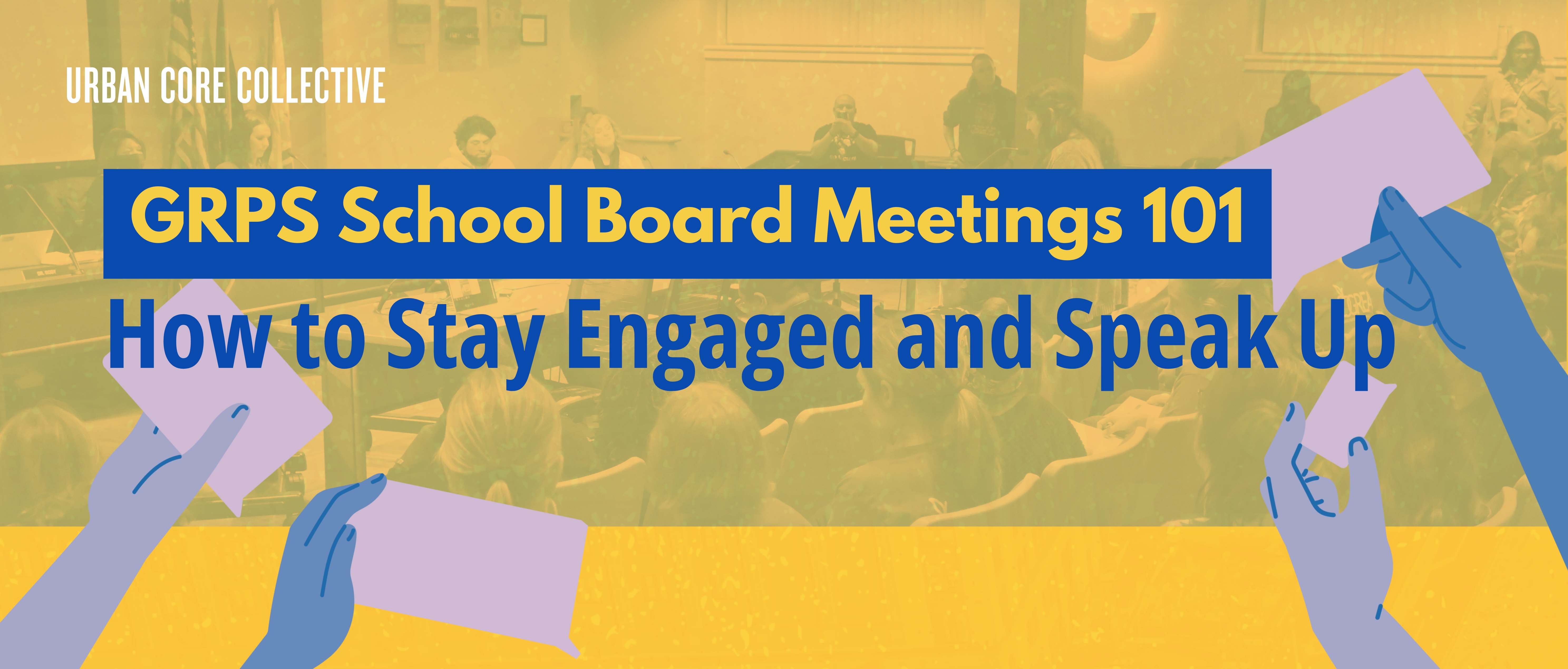This blog entry has been written by Shannon Cohen, Director of Growing Leaders for the Urban Core Collective.
Grand Rapids is buzzing with leadership development initiatives. Conversations swirl about the ‘talent pipeline’, attracting quality talent, retaining talent, and nurturing innovative talent in West Michigan. Yet, gaps remain even in the midst of increasing discourse about the importance of growing local talent for leadership. The Urban Core Collective is one of a rising contingency of voices contributing to leadership development discourse in this city in a manner that unveils invisible truths, disrupts notions of ‘rugged individualism’ and makes place for the voice and visibility of leaders of color.
#1: Increasing Leadership Development Opportunities for uniquely developed by and for Black and Brown Leaders
Let's be honest, there are universal truths about leadership:
- Leadership is lonely
- Leadership will cost you something
- Leadership can be simultaneously painful and rewarding
- Leadership demands courage, service and vision
While these truths are germane to all leaders, these universal realities of leadership are magnified exponentially in the lives of Black and Brown leaders. When you combine the impact of these truths with issues of institutional and systemic racism, fit and belonging in the workplace, access to executive coaches, mentors and sponsors, etc. the dialogue changes and the needs are different. The lived experiences of leaders of color require both universal and targeted approaches to leadership development.
UCC intentionally listened to the lived experiences of TLP alumni, utilized local data like the “Invisible Walls, Ceilings, and Floors” study, and mined national models and trends connected to leadership development for communities of color to design a multi-pronged approach to leadership development. The UCC Rise and Grind Series is a byproduct of this learning. UCC’s leadership initiatives not only address the technical aptitude needs of Black and Brown leaders, but their self-care and emotional well-being needs as well.
#2 Safe spaces of learning and growth just for Black and Brown leaders
Admitting deficiencies and asking for help is not always safe for leaders of color. Where others are coached, the vulnerabilities of leaders of color are often used to disqualify, diminish, and exploit. UCC also understands the diversity in learning preferences and styles of leaders we serve. Our research shows leaders prefer experiential learning rooted in relationship. This research is congruent with what Dr. Joy DeGruy refers to as the axology of Black and Brown folks. UCC is using haptic/tactile learning, storytelling, travel, and visual approaches to development. These innovative models foster the transfer of technical acumen and knowledge, expertise, social networks, and form communities of practice, but in a safe space. UCC’s Refuel Roadtrips are a reflection of this modality. Having opportunities to ‘just be’, to unpack what we navigate daily in the workplace, to be in community with kinfolks, and simultaneously given what we need to be excellent in our craft and superior in our industries is critical.
#3 Leadership vitally connected to our elders
There can be no conversation about leadership and progress for Black and Brown communities without honoring the labor and sacrifices of our ancestors and elders. Dominant culture discourse connected to ‘rugged individualism’ is incompatible with the cultural norms of intergenerational wisdom.
We are reclaiming our indigenous roots and leadership practices by creating opportunities and space to gather along the full continuum of emerging, existing, and established leaders.
We debunk the belief that retired leaders are less ‘useful’ and impactful. We do not put our elders out to pasture, while believing that what is ‘new’ is what is ‘hot’. We are centering the full continuum of Black and Brown leaders in our community.
UCC leadership initiatives like Rise and Grind, Refuel Roadtrips, and our signature Transformational Leadership Program are rooted in intergenerational cross-pollination. As Satoro said, individually we are a raindrop, but collectively, we are an ocean.




.png)

